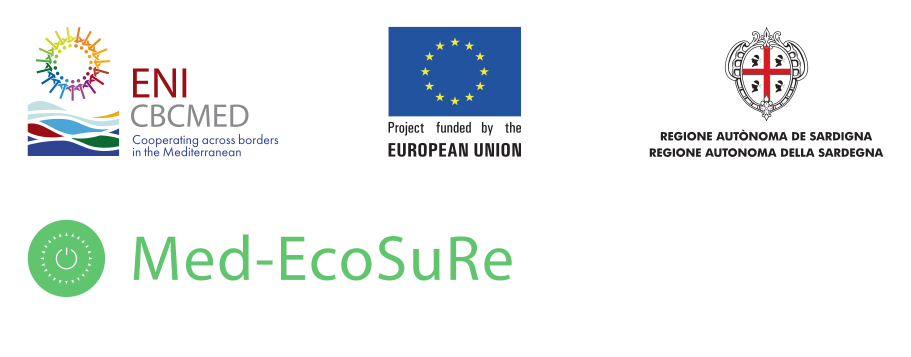PRESENTATION & OBJECTIVES
Low energy educational buildings are becoming the standard for new buildings in European and Mediterranean partner countries. Meanwhile, the potential of efficient renovation of existing buildings continues to be a development focus in these countries. Technical solutions are continuously proposed by universities for ecosustainable building renovation, but there is still a gap between designed models and real world application.
Past projects implemented in Mediterranean context mainly targeted towards bringing together industry elements to provide packaged solutions. However, several barriers inhibit the buildings’ renovation invigoration in Mediterranean climates, for instance:
-Insufficient collaboration between involved actors aimed at stimulating cost-effective renovations
-Inefficient suitable tools for public sector to achieve the developed solutions.
MedEcoSuRe (Mediterranean University as Catalyst for Eco-Sustainable Renovation) project is rooted in the key role that Mediterranean universities have to contribute to environmental development and combating climate change. It brings together researchers and stakeholders to build a common understanding of the eco-sustainable building renovation issues and aims to empower regional knowledge-to-action process. It is setting a collaborative learning scheme to value innovative energy renovation solutions and foster sustainable science and policy progress gradually, starting by the university’s immediate neighborhood, which is the university building in the framework of a “Living Lab” : MED beX.live.
The Living Lab has been launched in the framework of Med-EcoSuRe project by creating a core collaborative network of the project partners:
Mediterranean Renewable Energy Centre, Tunis – Tunisia
National Engineering School of Tunis, Tunis – Tunisia
Department of Architecture of the University of Florence -, Florence – Italy
University of Seville, Seville – Spain
An-Najah National University, Nablus – Palestine
Neapolitan Energy and Environment Agency, Naples – Italy
Spanish Solar Energy & Energy Efficiency Cluster, Barcelona – Spain
University of campania luigi vanvitelli, Naples – Italy
University of Naples Federico II, Naples – Italy
Smartech Cluster – The Cluster of Smart Technologies, Barcelona – Spain

